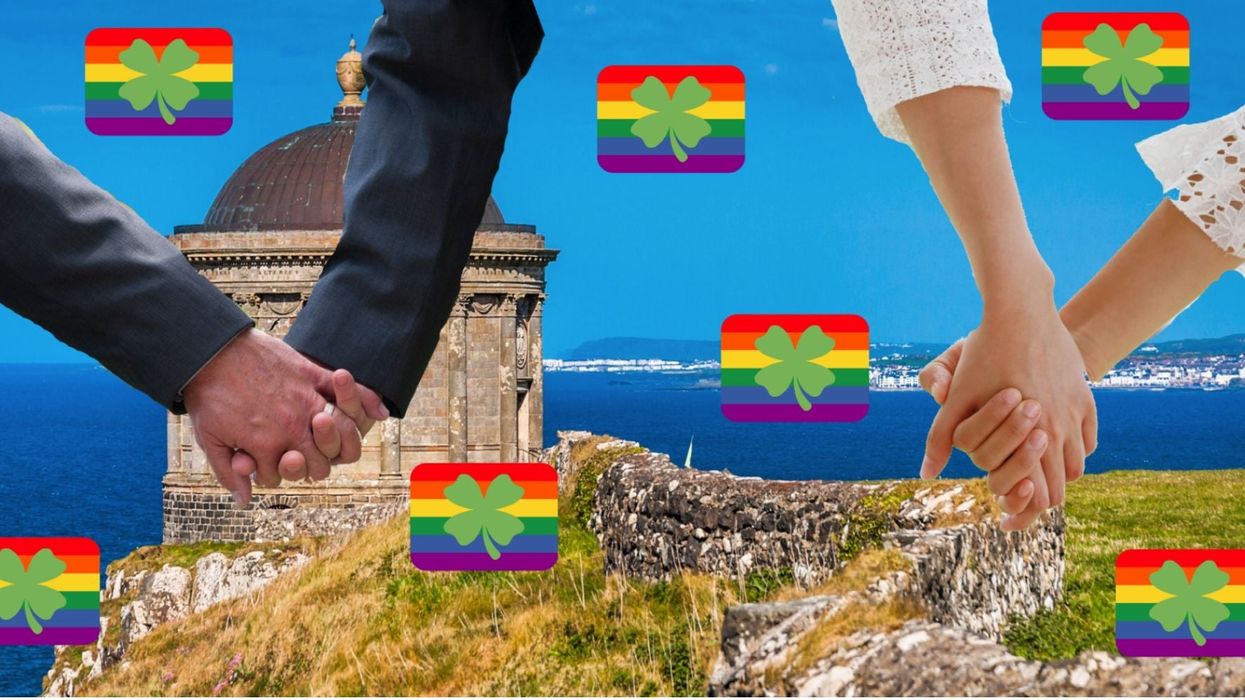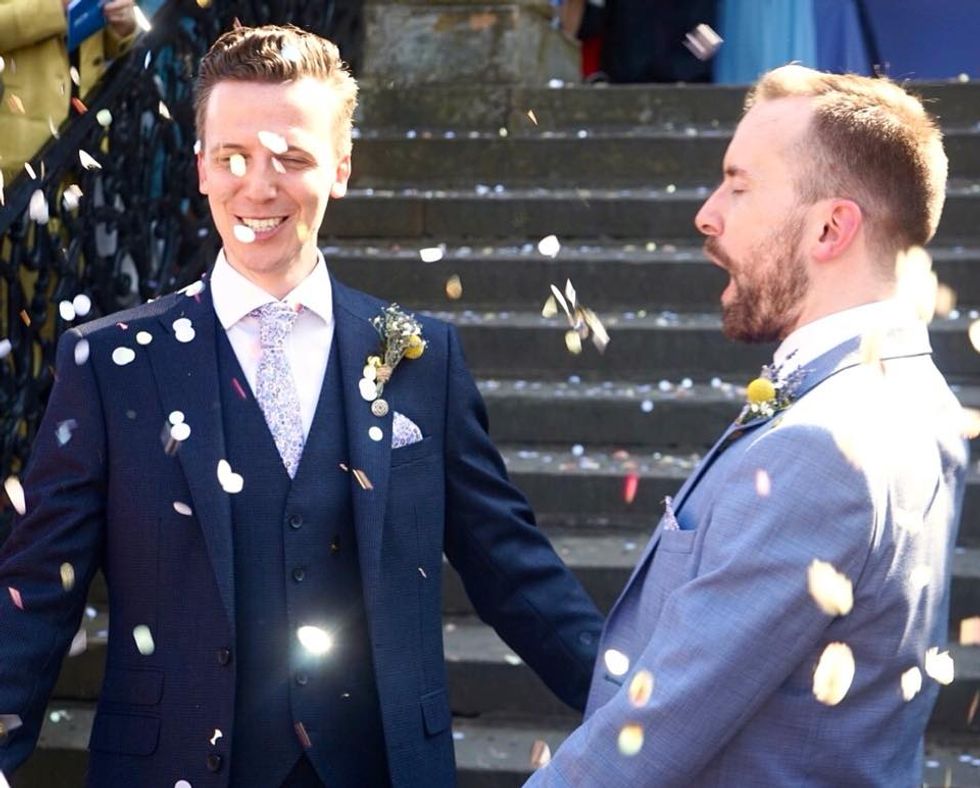News
Ben Kelly
Feb 11, 2020

iStock/indy100
I always wanted to get married in Derry – the city of my birth and the city that I love.
It’s a place like no other, where the air sings its own tunes and the sense of humour is like a second language. Like much of Northern Ireland, it bears the scars and traumas of recent decades but now hope cuts through – just like the Peace Bridge which has planted a modern facade on its landscape.
Across the past decade we moved on in so many ways, and with every trip back home I was overwhelmed by how progressive people had become. There is something about overcoming the hardships that we did which reminds people that loving who you want is nothing to fear.
Derry is the cradle of civil rights. My grandfather was among the generation in the 1960s who said ‘no more’ and took to the streets to demand basic things like one man one vote, an end to gerrymandering, access to housing and jobs – all of which was denied overwhelmingly to the Catholic population by the unionist government, while London turned a blind eye.
For a few years, London again turned that blind eye while unionists in Belfast denied equal rights – this time to members of the LBGTQ+ community. It wasn’t easy to call out the DUP’s misuse of their veto in Stormont when they were propping the Conservatives up at Westminster.
But they were on the wrong side of history. The law was changing in countries all around us, and a poll in April 2018 found that 76 per cent of people in Northern Ireland backed marriage equality. I didn’t want to wait any longer.
I married my husband Dom that summer in Donegal, just 20 minutes across the border, where marriage equality had been ratified in that historic 2015 referendum. Then, back in Derry, we held the kind of celebration I had always wanted. It was a glorious day, and people were visibly moved to be part of a union which was not just the cementing of a great love affair, but also a political act.
Our marriage may not have been legally recognised by the law in Northern Ireland, but it was validated by the love and admiration we felt from a room full of our closest family and friends.

I felt this power again in 2019 when I attended the wedding of one of my oldest friends Danielle and her new wife Emma – another ceremony we had to hop the border for. But eventually, the dam broke. Political opponents of equality may not have relented, but they acknowledged that the horse had bolted and so, they simply let it go. Today, we’ll see the first same-gender wedding in Northern Ireland between Robyn Peoples and Sharni Edwards, and it’s about time.
Now, when I go back to Derry, I’ll have the satisfaction of knowing that my marriage there is legal. I’ll also know that in younger generations, people like me will be growing up in the full knowledge that their love is as equal under the law as anyone else’s, and that they matter too.
As a person, I still feel I have a long way to go in life. But with a husband, I feel stronger and more ready to face the future. In Northern Ireland too, we have such a long way to go as a society. But with the introduction of marriage equality, and the widening of our embrace around marginalised citizens, we will also be stronger and better prepared for building a new society, free from the mistakes of the past.
MORE:Dear straight people, stop saying you 'knew all along' that Phillip Schofield is gay
Top 100
The Conversation (0)













